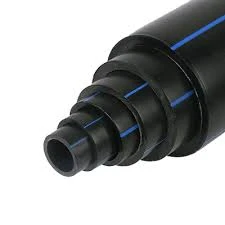dec . 22, 2024 20:46 Back to list
HDPE Plastic Pipe Applications and Benefits for Modern Infrastructure Solutions
Understanding HDPE Plastic Pipes Durability and Versatility
High-density polyethylene (HDPE) plastic pipes have garnered significant attention in various industries due to their robust characteristics and versatility. As a crucial component in infrastructure projects, municipal applications, and agricultural systems, HDPE pipes offer a sustainable solution for modern piping needs. This article aims to explore the benefits, applications, and considerations associated with HDPE plastic pipes.
What is HDPE?
High-density polyethylene is a thermoplastic polymer produced from petroleum. Its high molecular weight results in excellent strength-to-density ratios, making it ideal for several applications, especially in pipe manufacturing. HDPE is chemically resistant, lightweight, and flexible, attributes that set it apart from traditional piping materials like PVC and steel.
Advantages of HDPE Pipes
1. Durability HDPE pipes are known for their exceptional durability. They can withstand extreme temperatures and resist impact and corrosion, making them suitable for a vast range of environmental conditions. This longevity translates into reduced maintenance and replacement costs over time.
2. Flexibility Unlike more rigid piping materials, HDPE offers exceptional flexibility, allowing for easier installation in various terrains. This property also means that HDPE pipes can be used in applications where ground movement or shifting is a concern.
3. Lightweight The lightweight nature of HDPE makes handling and installation more manageable. Contractors appreciate the reduced labor costs and time savings associated with transporting and installing HDPE pipes.
4. Resistance to Corrosion and Chemicals HDPE pipes do not corrode like metal pipes, which means they maintain their integrity for longer periods. They are also resistant to a wide range of chemicals, making them suitable for transporting hazardous materials without the risk of leakage.
5. Environmental Friendliness HDPE is a recyclable material. Many companies utilize recycled HDPE in their manufacturing processes, contributing to a more sustainable approach to pipe production. The longevity of HDPE pipes also means less waste as they do not need to be replaced frequently.
Applications of HDPE Pipes
HDPE pipes find utility across different sectors, which include
hdpe plastic pipe

1. Water Supply Systems HDPE piping is widely used in municipal water supply systems for its non-toxic nature and ability to maintain water quality by preventing contamination.
2. Sewage and Stormwater Drainage The flexibility and durability of HDPE make it perfect for underground installations in sewage and stormwater systems, where they can adapt to changes in ground conditions.
3. Irrigation Systems In agriculture, HDPE piping is an optimal choice for irrigation due to its resistance to chemicals found in fertilizers and pesticides, ensuring longevity in the field.
4. Oil and Gas Industry The chemical resistance of HDPE also makes it suitable for the transportation of oil and gas, where traditional materials might fail under harsh conditions.
5. Telecommunications HDPE pipes are increasingly used in the telecommunications sector for conduit applications due to their smooth interior surface, which minimizes friction and improves performance.
Considerations When Using HDPE Pipes
While HDPE pipes offer numerous advantages, there are some considerations to keep in mind
1. Jointing Methods The installation process requires specialized equipment for jointing, such as heat fusion, which may increase initial installation costs.
2. Temperature Constraints Although HDPE is resistant to various temperatures, extreme heat can sometimes cause deformation. It is essential to consider environmental conditions during installation and application.
3. Regulatory Compliance Depending on the industry and application, certain regulations may apply to the use of HDPE, particularly in drinking water systems. It's crucial to ensure compliance with local codes and standards.
Conclusion
HDPE plastic pipes present a compelling option for a multitude of applications, given their strength, flexibility, and resistance to corrosion. Their environmental benefits also align with the growing demand for sustainable materials in modern construction and infrastructure. As industries continue to evolve, the role of HDPE pipes is likely to expand, making them an integral part of future projects. Whether you are involved in urban planning, agriculture, or industrial sectors, understanding the benefits and applications of HDPE piping can help in making informed decisions that enhance both performance and sustainability.
-
Durable PP Rigid Sheet: Lightweight, Chemical Resistant Solutions
NewsAug.21,2025
-
PVC Grey Sheet for Extraction: Chemical Resistant & Durable
NewsAug.19,2025
-
Durable PVC Pipe Fittings for Plumbing & Irrigation Needs
NewsAug.18,2025
-
HDPE Steel Belt Reinforced Spiral Corrugated Pipe | High Strength
NewsAug.17,2025
-
HDPE Pipe Fittings: Durable, Leak-Proof Solutions
NewsAug.16,2025
-
Premium CPVC Sheet: High-Temp & Chemical Resistant Solutions
NewsAug.15,2025

